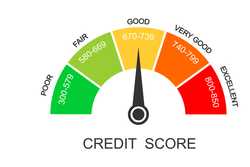What Are Tradelines and How Do They Work?

Our evaluations and opinions are not influenced by our advertising relationships, but we may earn a commission from our partners’ links. This content is created by TIME Stamped, under TIME’s direction and produced in accordance with TIME’s editorial guidelines and overseen by TIME’s editorial staff. Learn more about it.
Tradelines tell your financial story in detail. Every revolving and installment loan on your credit account has a tradeline, including credit cards; personal, auto, and student loans; mortgages; and home equity loans or lines of credit. Each tradeline notes detailed information concerning the debt.
The three main credit bureaus—Experian, Equifax, and TransUnion—place them under “Tradeline Summary” on your credit report and use them to determine your credit score, a sort of snapshot of your creditworthiness. Lenders review them to get a more complete picture of your financial life beyond your score. They use tradelines to make a decision on whether to issue you credit, loans, and insurance, as well as whether to give the OK on renting a house or an apartment.
Tradelines serve as an explication of a credit score. For example, a lender can determine by looking at a tradeline if you’re delinquent on a particular account. If that’s the case, the lender can also find out how long the account has gone unpaid or if your credit score has dropped due to your high credit utilization ratio.
That ratio is calculated by dividing the total credit available to you by the amount of credit you’re using. It helps to decide if you're a credit risk by checking the balance against the credit limit.
You can dispute information on your credit report. Incorrect or fraudulent negative tradelines must be fixed or removed within 30 days after the credit bureau receives proof of the mistake.
There are three basic types of debt.
Each debt you have under any of these categories would have its own tradeline.
The information found on tradelines usually includes:
If a consumer closes an account in good standing, the closure will typically remain on their credit report for 10 years. Negative information goes away after seven years.
Delinquencies are organized by the number of days late—usually 30, 60, 90, or 180.The payment status may be set to “charge off” if the lender doesn’t believe the creditor will pay their debt or thinks they may declare bankruptcy.
If you are an authorized user on someone else’s credit card, you can try to have your name removed from a delinquent account. However, only the primary card user has the authority to do this. If you succeed at getting your name removed, that particular tradeline will be erased from your credit report.
Tradelines provide the details behind your credit score and give the lender a more complete picture on how you are managing your credit. They can tell the lender whether you pay your mortgage on time or not, how often you use credit cards, and whether you’re behind on paying off your student loans. If your picture shows bad financial health, it can damage your ability to get loans, be approved for a rental house or apartment, or buy a new car on credit.
A tradeline could be your purchase of a $300 coat on credit and when you paid for it, the history of your car loan, or—for a business—a loan to buy new equipment and when it was paid in full.
They appear under the “Tradeline Summary” heading on your report.
Tradelines are recorded when you use credit of any kind, including credit cards and loans.
Tradelines can indeed hurt your credit if you are late paying back loans or delinquent on your credit card bill.. This is because credit bureaus report your financial behavior to lenders.
Tradelines last as long as a debt is outstanding. If you pay off an account while you’re in good standing, the information will stay on your report for another 10 years, potentially boosting your credit score. However, if you close a delinquent account, the tradeline associated with it will be on your report for seven years, possibly hurting your credit score.
The information presented here is created by TIME Stamped and overseen by TIME editorial staff. To learn more, see our About Us page.



